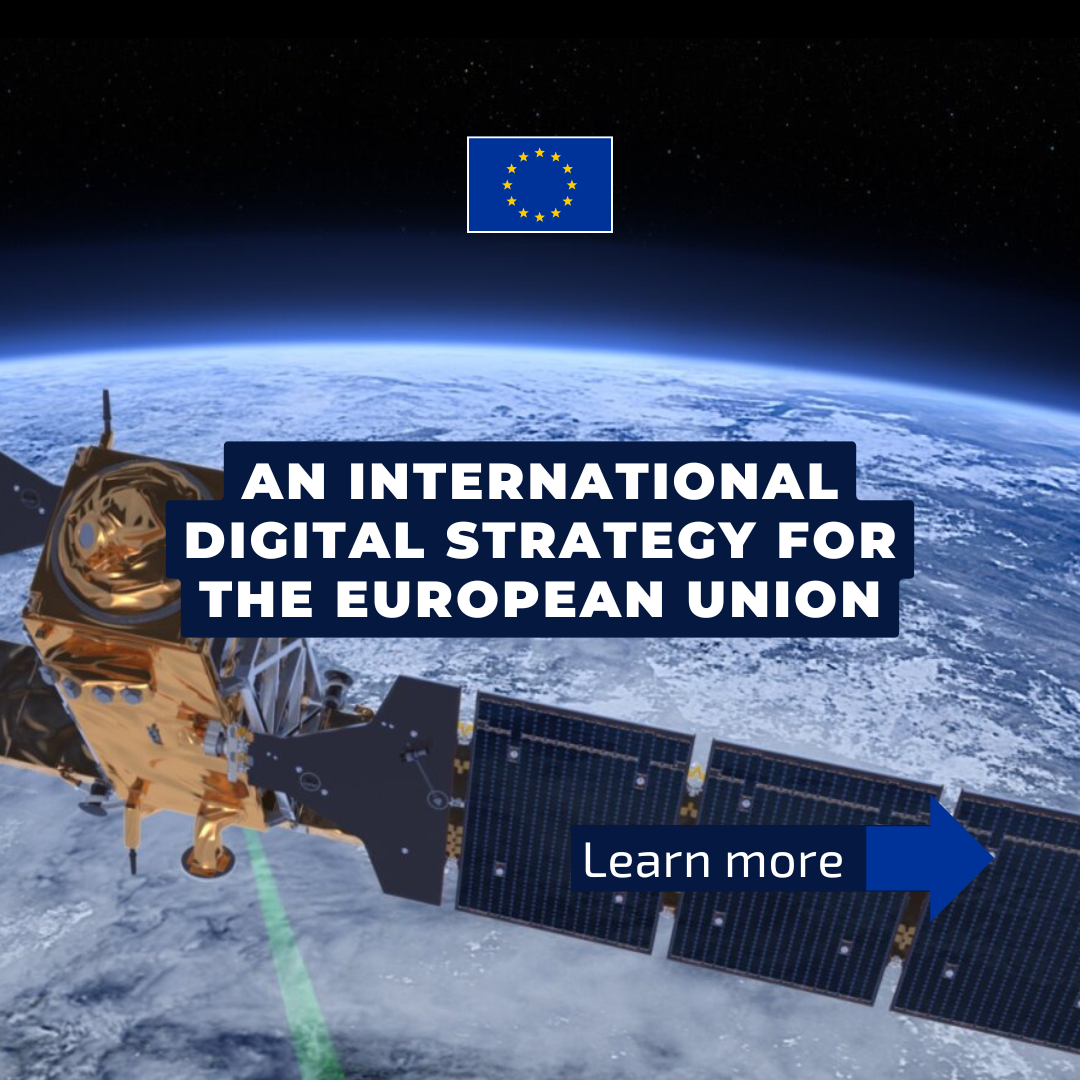The European Union sets out its International Digital Strategy

As the digital revolution is reshaping economies and societies in a global geopolitical landscape which is more challenging than ever, the new EU International Digital Strategy shows that the EU is a stable and reliable partner, open to digital cooperation with allies and partners.
While the EU will spare no effort to boost competitiveness in AI and other key technologies at home, it will also work with partners to support their own digital transition. The Strategy reaffirms the EU's commitment to building a rules-based global digital order, in line with its fundamental values.
The Strategy has the following objectives:
-
To expand international partnerships, by deepening existing Digital Partnerships and Dialogues, establishing new ones, and fostering collaboration through a new Digital Partnership Network, the EU will strengthen its tech competitiveness and security as well as that of its partners.
-
To deploy an EU Tech Business Offer, by combining EU private and public sector investments to support the digital transition of partner countries, incorporating components such as AI Factories, investments in secure and trusted connectivity, Digital Public Infrastructure, cybersecurity, and more.
-
To strengthen global digital governance, by promoting a rules-based global digital order, in line with the EU's fundamental values.
The EU has maintained a longstanding cooperation on digital priorities with countries around the world, notably via Trade and Technology Councils, Digital Partnerships and several Digital and Cyber Dialogues, as well as Digital Trade Agreements. Collaboration with partner countries is also advancing, among others, under the Global Gateway and through new Security and Defence Partnerships with allies.
Cooperation with partner countries will focus on the following priority areas:
-
Secure and trusted digital infrastructure, essential to enable developments in critical sectors such as energy, transport, finance and health.
-
Emerging technologies, such as AI, 5G/6G, semiconductors, and quantum technologies.
-
Digital governance that fosters social cohesion, protects human rights and democratic principles.
-
Cybersecurity, to strengthen the cyber defence of our partner countries as a direct investment in the EU's own security.
-
Digital identities and Digital Public Infrastructure, towards mutual recognition arrangements with key partner that can simplify cross-border business and facilitate citizens' mobility.
-
Online platforms to continue promoting protection of children online, freedom of speech, democracy and citizens' privacy.
Next steps
The Commission and the High Representative will present the proposals in a series of events immediately after adoption, with a view to begin implementing the actions laid out in the joint communication as soon as possible.
Background
In April 2024, the European Council highlighted the need to strengthen the EU's leadership in global digital affairs, inviting the Commission and the High Representative to prepare a joint communication on the subject.
The Commission launched a public call for evidence on 8 May to gather ideas to help shape the EU's external digital policy. A wide variety of stakeholders, including tech companies, trade associations, national EU and third country authorities, civil society, non-governmental organisations, academia and citizens, shared their views.
For more information
Joint Communication and its annex
“Countries that master AI and advanced technologies not only gain a decisive economic edge but also strengthen their national defence and security. While the EU will spare no efforts to boost its competitiveness in these fields, we will also work with partners to support their own digital transitions. Indeed, no country or region can lead the technological revolution alone. And AI is too fundamental for the future of humanity to be reduced to a quest for supremacy among advanced AI powers. In the EU, we have a lot of expertise and solutions to offer and a strong political will to boost tech innovation and security in the EU and for our allies and partners. Today, we are taking a decisive step forward in strengthening our current collaborations, and seeking new partners.”
Henna Virkkunen, Executive Vice-President for Tech Sovereignty, Security and Democracy
“Europe has huge potential to expand its geopolitical reach on digital issues, and today we set out a clear vision to do just that. We are ready to collaborate more closely with partners on shared digital challenges while remaining committed to individual rights and freedoms that are essential for effective global digital governance. Digital technologies are also central to defence. We see this everywhere, from Artificial Intelligence on the battlefield in Ukraine to state-sponsored cyberattacks against EU Member States. Our new strategy calls for strengthening Europe’s ability to defend itself against digital threats, while championing tech innovation, including as part of building a stronger European defence sector.”
Kaja Kallas, High Representative for Foreign Affairs and Security Policy/Vice-President of the European Commission





